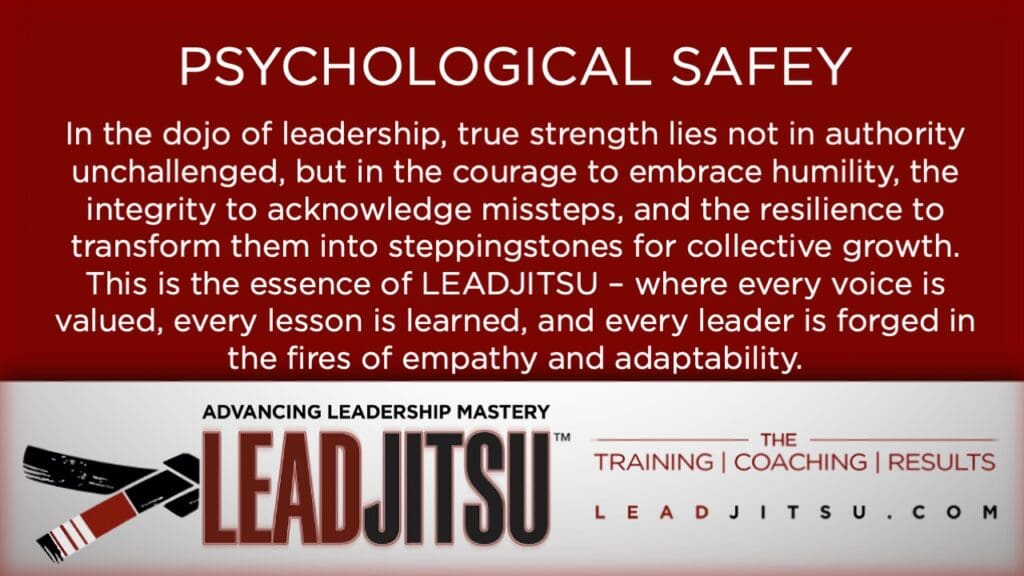Lack of Psychological Safety Can Undermine Organizational Goals

Building a Culture of Psychological Safety with LEADJITSU and The Leader’s Code
Encourage Open and Respectful Communication: Embrace ‘Dojo Respect’ and ‘Bridge Communication’ to foster an environment where feedback is given and received with respect and clarity.
Normalize the Discussion of Mistakes: Utilize ‘Gi Integrity’ and ‘Kata Discipline’ to view errors as opportunities for growth and learning rather than reasons for punishment.
Lead with Humility and Empathy: ‘Sensei’s Humility’ and ‘Empathetic Connection’ encourage leaders to be open to learning and to understand the emotional landscapes of their teams.
Foster Resilience and Courage: ‘Warrior’s Courage’ and ‘Resilient Spirit’ inspire leaders and teams to face challenges head-on and bounce back from setbacks.
Promote Continuous Learning and Adaptability: ‘Flow Adaptability’ and ‘Patient Path’ emphasize the importance of adapting to changing circumstances and nurturing long-term growth.
Embracing a New Era of Leadership
As we advance into 2024, the integration of Leadjitsu and The Leader’s Code offers a transformative approach to leadership, crucial for fostering psychological safety. The NFL’s approach to referee criticism serves as a poignant example of the need for openness, humility, and resilience in leadership.
By adopting these principles, organizations can create a culture where every voice is heard, mistakes are learning opportunities, and excellence is a shared journey. This is the path to true leadership and organizational excellence in the modern era.
Discover the power of transformation with Spark Catalyst, the initial phase of our groundbreaking LEADJITSU for Teams Program. Tailor-made for teams poised on the brink of change, Spark Catalyst offers a unique blend of insightful assessments and dynamic introductions to the principles of LEADJITSU. Spark Catalyst is your first step towards a future of inspired leadership and cohesive teamwork. Ignite the spark of leadership excellence in your team today with Spark Catalyst
Share this article if you believe others may find value in it.
– – – – –
Nonsense-free, Quantitative Results.
Global Leadership Training and Executive Coaching
LEADJITSU – The Vision, Artistry and Discipline of Superb Leadership
The Training | The Coaching | The Culture | The Results

